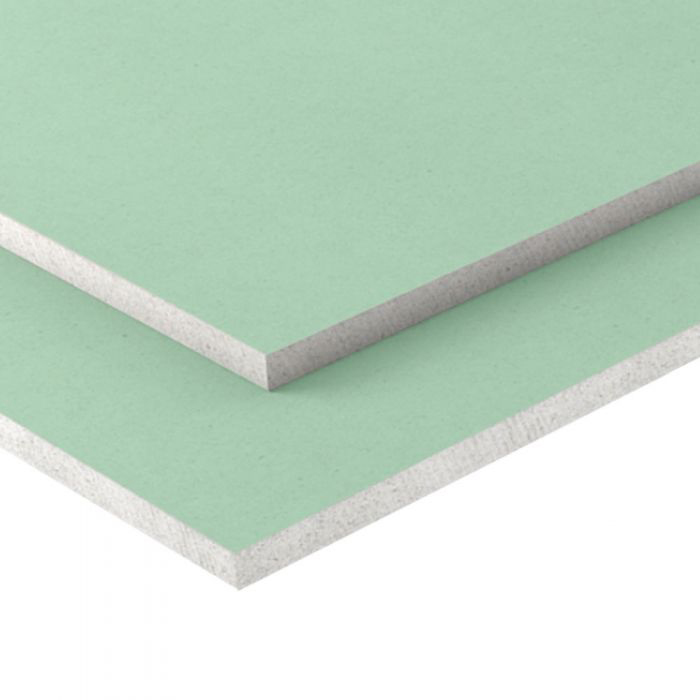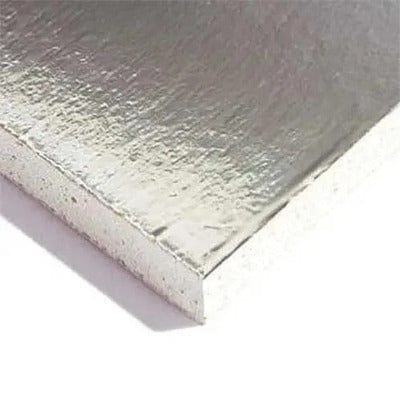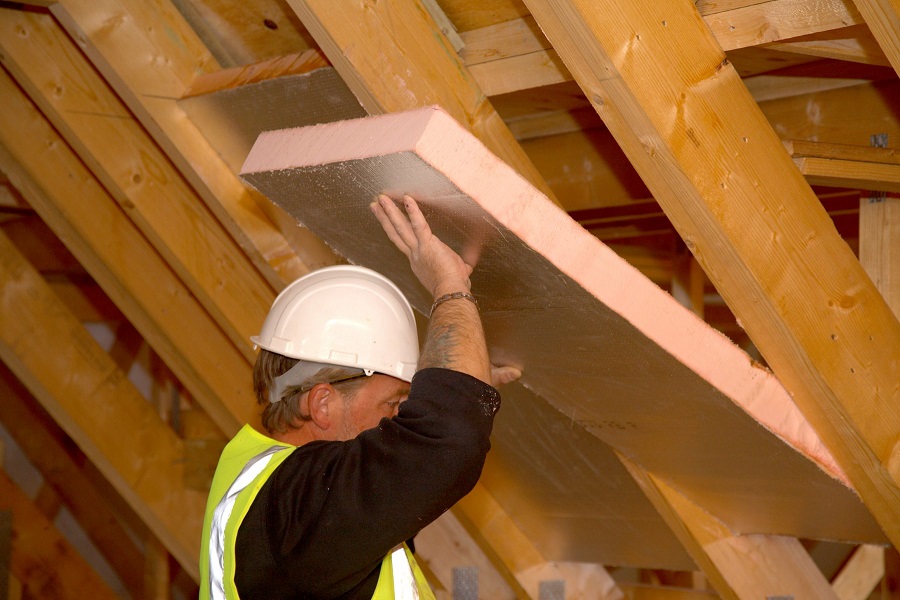WHY METAL STUD PARTITION WALLS ARE A GAME CHANGER: BUILDING THE FUTURE

Explore the revolution in construction with metal stud partician walls, blending durability, flexibility and sustainability for the future of building.
Metal stud partition walls are at the forefront of a revolution in the construction industry. Renowned for their robustness, adaptability, and straightforward installation, these Stud Partition Walls are swiftly becoming the go-to choice in contemporary building design. They present a formidable alternative to traditional materials, offering both lightness and strength, which markedly enhances the efficiency and versatility of construction projects. This blog examines the critical role of metal stud partition walls in modern construction, highlighting their increasing importance in the sector and their influence on future building trends. As we explore the merits and uses of these innovative partition solutions, the reasons for their growing necessity in today's construction landscape become evident.
What are Metal Stud Partition Walls?
Metal stud partition walls, commonly referred to in the industry as Stud Partition Walls, are a modern method of creating internal partitions in buildings. These walls are constructed using metal studs, which are lightweight metal frames that are made of steel. The basic construction involves aligning these metal studs vertically between floors and ceilings metal tracks and then attaching plasterboard to either side, creating a 'sandwich' structure. This method replaces traditional timber framing, offering a lighter, yet equally sturdy alternative.
The evolution from classic partitioning methods to metal stud walls represents a significant advancement in building technology. Traditional methods often relied on materials like wood or brick, which, while robust, were heavier and less flexible in terms of design and space utilisation. Metal studs, on the other hand, allow for more versatile room layouts and are easier to install and modify if necessary. This shift not only signifies an improvement in the practical aspects of building but also reflects the industry's ongoing adaptation to newer, more efficient construction practices. Metal stud walls, with their combination of strength and flexibility, are an apt embodiment of this modern approach to building design.
Benefits of Metal Stud Partition Walls
The adoption of metal stud partition walls in construction has brought forth a multitude of advantages, significantly impacting the industry. These benefits include durability, flexibility, ease of installation, and more, making these walls a game changer in building design and construction.
Durability: Metal stud partition walls are known for their exceptional durability. Unlike traditional wood framing, metal studs are not susceptible to rot, warping, or termite damage. This longevity ensures that buildings retain their structural integrity and aesthetic appeal for longer periods.
Flexibility: These walls offer unparalleled flexibility in design. The lightweight nature of metal studs makes them easy to manipulate, allowing architects and builders to create varied layouts with ease. This adaptability is especially beneficial in commercial spaces where changing needs may require reconfiguration of interiors.
Ease of Installation: Metal studs are significantly lighter than traditional materials like brick or concrete, making them easier and quicker to install. This efficiency reduces labour costs and speeds up construction timelines, a critical factor in large-scale projects.
Real-World Examples:
In the commercial sector, office buildings frequently utilise metal stud partition walls for their ability to be quickly reconfigured as per changing business needs.
In residential construction, these walls have been used to create innovative, flexible living spaces, allowing homeowners to adapt their homes to evolving lifestyle requirements.
These examples underscore the transformative impact of metal stud partition walls in modern construction. Their integration into building projects reflects a shift towards more efficient, adaptable, and sustainable construction practices, underlining their status as a pivotal element in the future of building design.
Comparing Metal Stud Walls to Traditional Methods
Metal stud partition walls represent a significant advancement over traditional partitioning methods such as timber and brick. In terms of cost-effectiveness, metal studs often prove more economical. The lower material cost, coupled with quicker installation times, leads to reduced overall project costs. Additionally, the lightweight nature of metal studs simplifies handling and transport, further cutting down on expenses.
Installation time is another area where metal stud walls have an advantage. Their prefabricated nature allows for rapid assembly on-site, significantly speeding up the construction process compared to brick walls, which require more time for laying and setting. Wooden partitions, while quicker to install than brick, still lag behind metal studs in terms of installation speed and ease.
Environmentally, metal stud walls offer several benefits. Unlike wood, which necessitates deforestation, metal studs are often made from recycled materials, reducing the impact on natural resources.
Furthermore, their durability means less frequent replacements or repairs, contributing to waste reduction. This aspect of sustainability is increasingly crucial in construction, positioning metal stud walls as a more environmentally responsible choice.
The Role of Metal Stud Walls in Sustainable Construction
In sustainable construction, metal stud partition walls play a pivotal role. Their environmental benefits are multifaceted, beginning with the materials used. Many metal studs are manufactured from recycled steel, thus reducing the demand for virgin resources and the energy consumption associated with mining and processing new materials.
Moreover, the energy efficiency of buildings is enhanced by metal stud walls. Their design allows for effective insulation to be easily integrated, improving a building's thermal efficiency and reducing energy consumption for heating and cooling. This contributes to a lower carbon footprint for structures utilising these walls.
Additionally, the longevity of metal stud walls means less need for replacement and maintenance, which translates to reduced resource use and waste over the building's lifecycle. This durability, combined with the potential for recycling the materials at the end of their use, aligns well with the principles of sustainable construction.
Future Trends and Innovations
Looking ahead, the future of metal stud partition walls in construction appears bright, with several trends and innovations poised to enhance their use. One area of development is in the integration of smart technologies. Advances in smart building materials could see metal studs equipped with sensors to monitor structural health or environmental conditions, adding a new dimension of functionality.
Another trend is the increasing focus on modular and prefabricated construction. Metal stud walls are well-suited to this approach, with their prefabricated nature allowing for even faster and more efficient building processes. This could revolutionise how quickly and efficiently buildings are erected, particularly in sectors like commercial and emergency housing.
Sustainability will continue to be a significant driver of innovation. Research into even more eco-friendly materials and processes for producing metal studs is likely to progress, reducing the environmental impact of these walls further. We may also see innovations that enhance the recyclability of these materials, ensuring that they remain a sustainable choice throughout their lifecycle and beyond.
These trends indicate not just the staying power of metal stud partition walls in the construction industry, but also their potential to evolve and adapt to meet the changing needs and challenges of modern building practices.
In summary, metal stud partition walls have emerged as a transformative element in the construction industry. By offering advantages over traditional methods in terms of cost-effectiveness, installation efficiency, and environmental impact, they represent a significant leap forward in building design and practice. As the industry continues to evolve, with a growing emphasis on sustainability and innovation, metal stud walls are poised to play an increasingly vital role. Their adaptability and alignment with future trends in construction underscore their importance as a key component in building the structures of tomorrow. This exploration affirms that metal stud partition walls are not just a current trend but a cornerstone in the future of construction.
As we've explored, metal stud partition walls are revolutionising the construction industry with their durability, flexibility, and environmental benefits. If you're ready to embrace this game-changing solution for your next building project, we're here to help.
At Buildershop, we specialise in providing top-tier metal stud partition walls, tailored to meet the unique demands of modern construction. Whether you're planning a commercial space that needs adaptable partitions or a residential project seeking sustainable and efficient materials, our expert team is equipped to guide you every step of the way.
Discover the difference metal stud partition walls can make in your next project. Contact us at sales@buildershoponline.co.uk or visit our website to learn more about our products and how we can assist in bringing your visionary projects to life.
If you'd like to know how easy it is to put up a metal stud wall then checkout our step-by-step guide.










